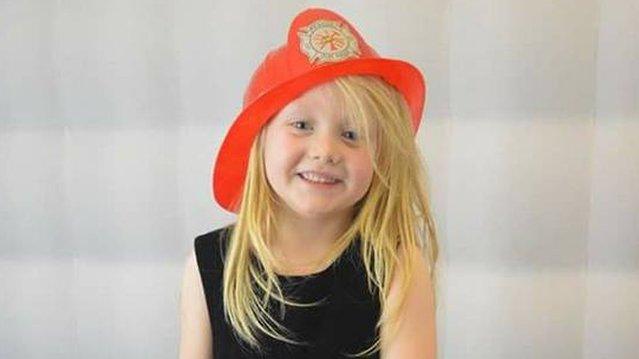Alesha MacPhail: The teenage killer caught by his mother's CCTV
- Published
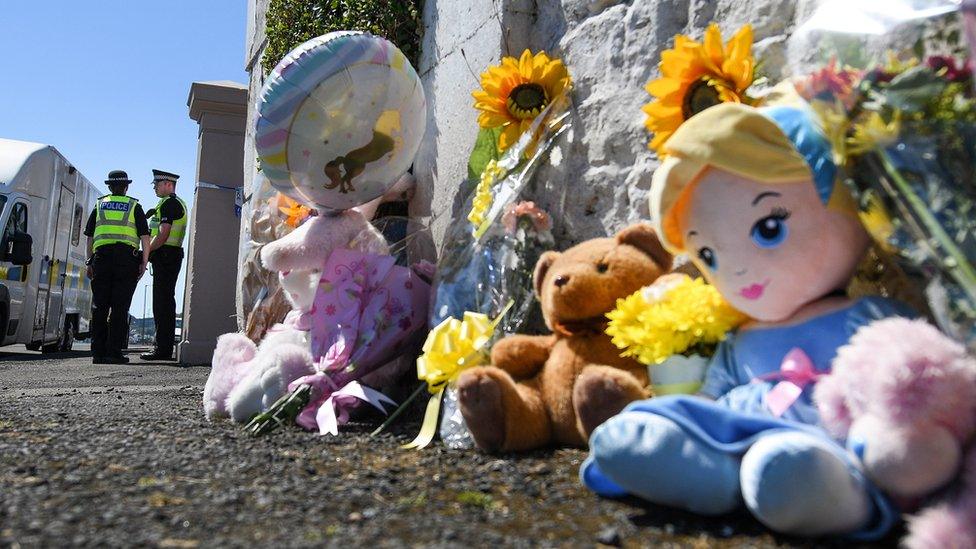
Tributes left outside Alesha's grandparents' home on Ardbeg Road, Rothesay
"I've found the wee girl.... she's dead."
Jorge Williams' voice trembled as he broke the devastating news to a 999 call handler.
Less than half an hour had passed since he had answered a Facebook appeal to trace a missing six-year-old.
It was one of the warmest summers on record and dozens of residents on the tranquil Isle of Bute took to the shoreline and streets.
But the search ended abruptly at 08:54 when Mr Williams discovered Alesha's naked body in a wooded area near his home in Ardbeg.
Detectives would later establish the child was abducted from her bed and carried to the lonely spot, less than a mile from her grandparents' flat in Rothesay.
There, just days into her summer holiday, she was raped and murdered.
A 16-year-old boy, who cannot be named because he is under 18, was found guilty of the crime.
His conviction following a High Court trial in Glasgow would be the culmination of a police investigation which was helped in part by his own mother.
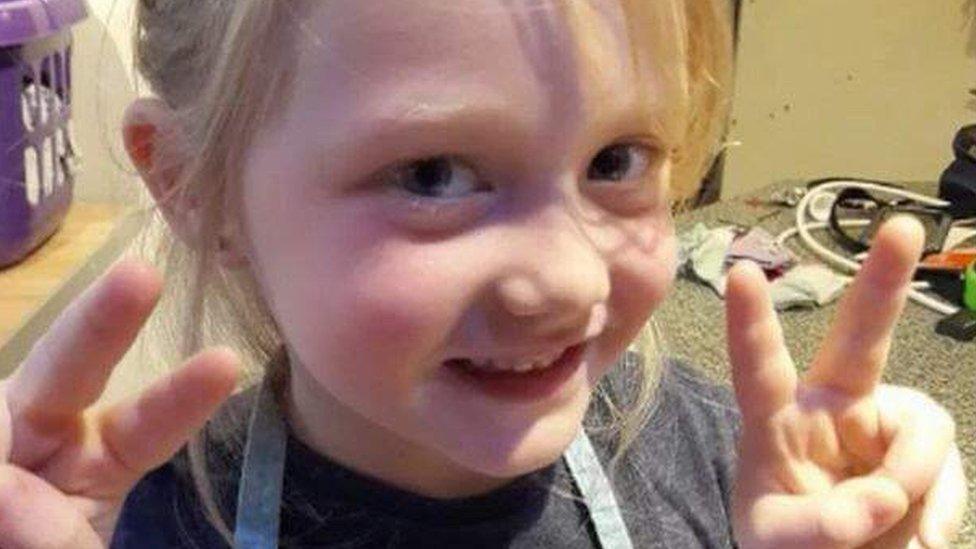
Six-year-old Alesha MacPhail was only days into a summer break when she was murdered
It was just after 6am on 2 July and Calum MacPhail was getting ready for work.
He noticed the door to his granddaughter's room was open then discovered she had vanished.
Giving evidence during the nine-day trial, Mr MacPhail told the jury: "We searched under beds, in wardrobes, but there was no sign of her anywhere."
Alesha had never been missing before and her scooter and bike were still in the garden.
At 06:23 the child's grandmother, Angela King, dialled 999.
The family alerted staff at the ferry port and locals, including the volunteer Bute Resilience Team, joined the search.
'We've found her'
In an industrial estate near Glasgow Airport Police Scotland's Major Investigation Team was briefed on the case.
Back on Bute Mr MacPhail became alarmed when he saw an ambulance speeding past with its blue light on.
It came to a halt near the site of the old Kyles Hydropathic Hotel, which had been cordoned off.
Ms King, 47, recalled a conversation with her partner in which he broke off to scream at officers: "If that's my granddaughter up there then I want to know."
The family were advised to go to Rothesay Police Station for an update, and once inside they were told: "We've found her, but she has passed."
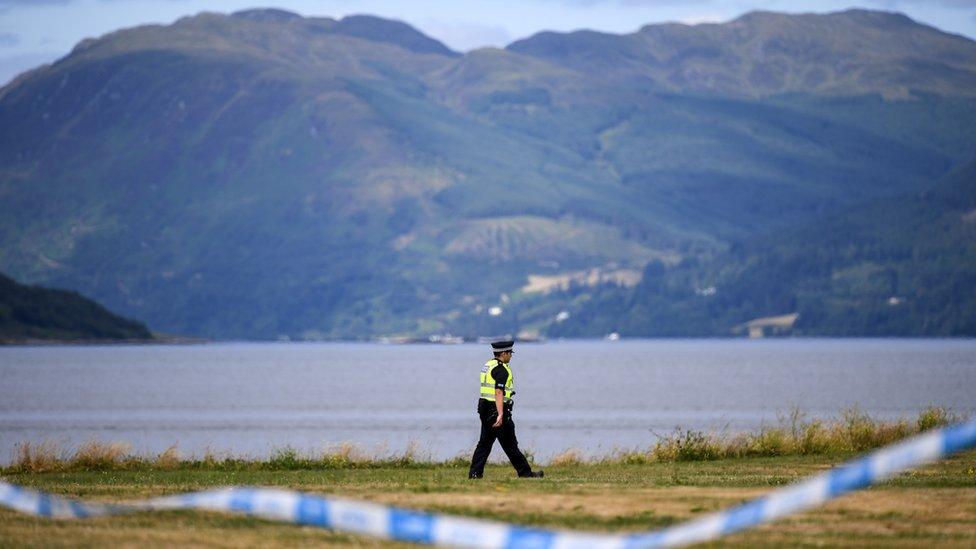
The murder shocked the island community
Alesha was lying on her side when she was discovered by Mr Williams and the killer had made no attempt to conceal her body.
It was later calculated that the walking distance from the flat to the spot could be covered in between 15 to 17 minutes.
Pathologist Dr John Williams established the cause of death was significant pressure being applied to the face and neck.
The expert also told the court Alesha had 117 injuries, some of which he described as "catastrophic".
Crucially, the soles of Alesha's feet were clean, which indicated she had been carried to her death.
Mother spoke to her son
Detectives made a breakthrough just after midnight on 3 July from an unlikely source.
The killer's mother had reviewed CCTV at the family home and spotted her son coming and going in the middle of the night.
She believed he may have seen something and contacted the police.
The mother quizzed her son and told the jury: "He was adamant he had nothing to do with it.
"There was no way they would find his DNA because he had been nowhere near this little girl."
In the course of the investigation the killer's phone was forensically examined and experts established he had carried out a Google search for "How do police find DNA?"
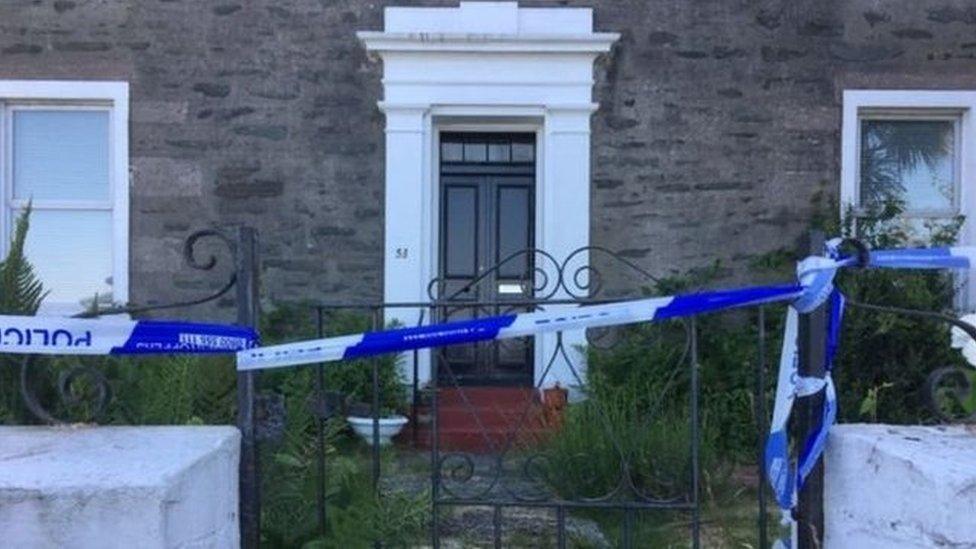
The six-year-old was staying at her grandparents' house before she disappeared
Hours before Alesha was killed the boy had hosted a party for his friends which broke up at 00:30.
At that point the accused was drunk and in a distressed state.
To calm himself down he tried to buy cannabis but Alesha's father, whom he had obtained the drug from in the past, did not respond to his messages.
At 01:54 the accused was spotted on CCTV leaving his family home.
He went to the MacPhail's flat on Ardbeg Road and found that the key had been left in the lock.
The killer entered the property and took Alesha out of bed without waking her or the four adults sleeping in rooms along the hall.
The next footage of significance to the inquiry came from two houses on Marine Place.
'Might kill one day'
Between 02:25 and 02:26 they captured a figure walking along the shoreline carrying something.
The CCTV trail then went cold until 03:35 when the accused was filmed arriving home.
Ten minutes later he left wearing a pair of shorts, no top and no shoes.
He returned at 03:52 and then departed again six minutes later wearing a grey T-shirt, dark shorts, dark footwear and carrying a torch.
The accused arrived home for the final time at 04:07.
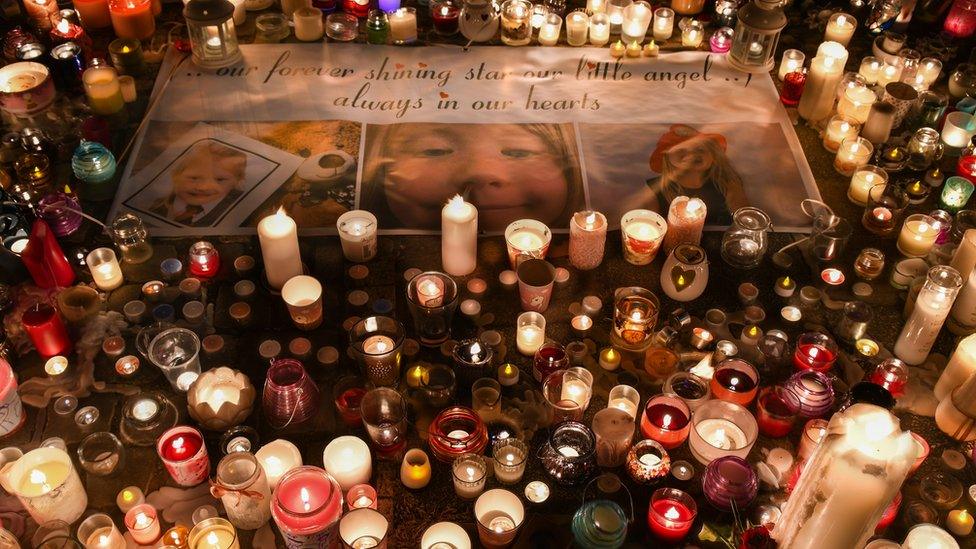
Locals on Bute staged a candlelit vigil in memory of the schoolgirl
The teenager's friends told the court he had a "dark sense of humour".
The jury also heard evidence about a private conversation he had had with a female friend in which he said he might kill one day for the "lifetime experience".
A 16-year-old girl said he made the comment in a Facebook Messenger chat in 2017 after she started discussing a crime documentary.
The same friend also said he contacted her just three hours after Alesha was found dead.
DNA evidence
She said: "During the conversation he started to get anxious and he said the police were going to blame it on him."
In the hours after the body was found there was speculation about the crime on a Snapchat group the teenager was part of.
During this time he produced a video in which he walked into his bathroom and then revealed his reflection in the mirror.
It was accompanied by the caption: "Found the guy who done it."
The court also heard the accused lifted weights and could bench press 50kg - more than double the 22kg Alesha weighed.
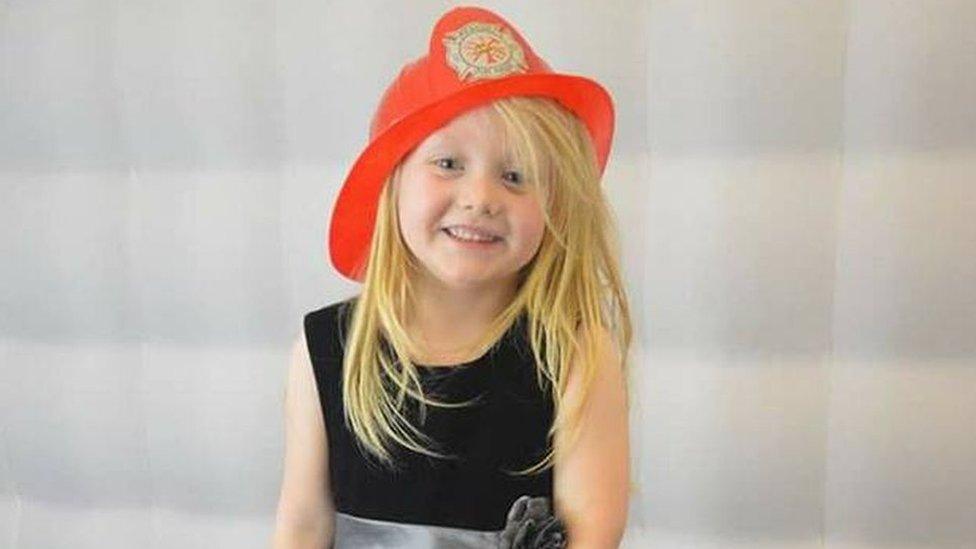
Alesha MacPhail's uncle Calum described the child as the "brightest thing"
In his defence, the 16-year-old claimed his DNA was planted at the crime scene, but the sheer volume of samples recovered left his astonishing alibi in tatters.
Forensic scientist Stuart Bailey found the accused's profile on intimate swabs taken from Alesha and on the front of her neck
The odds of it being from anyone else were more than one in a billion.
Additional samples were recovered on the child's body and clothing.
Mr Bailey said it was "highly unlikely" they had got there through anything other than direct contact.
The accused was arrested at 5pm on 4 July and driven to Helen Street police station in Glasgow where he was formally charged with Alesha's murder.
Despite what prosecutor Iain McSporran QC described as a "mountain of evidence" he compounded the family's agony by forcing them to endure a trial and blamed Alesha's father's girlfiend, Toni McLachlan, for the crime.
Innocent person
In a further twist, he agreed to testify and dismissed suggestions he was a "confident liar".
The accused repeatedly denied he was responsible and told the court: "I have never met Alesha MacPhail."
The most memorable exchange came after Mr McSporran suggested it would have been "extraordinarily wicked" for Ms McLachlan to have murdered her boyfriend's daughter.
The accused, who appeared completely unfazed by the enormity of the charge facing him, said: "I agree."
The QC then put it to the 16-year-old that the same description would apply to someone who alleged an innocent person was responsible for such a crime.
The teenager locked eyes with the prosecutor across the courtroom and replied: "It would be evil."
- Published21 February 2019
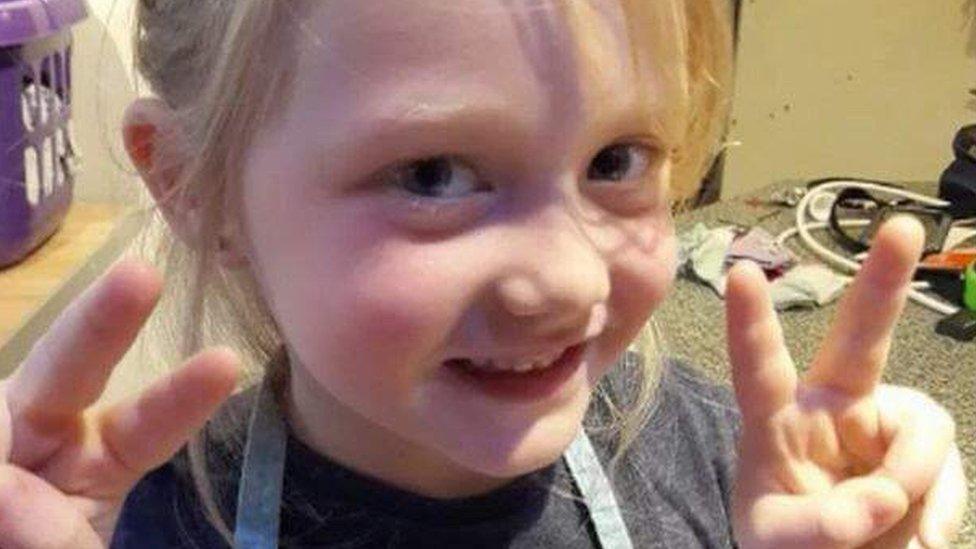
- Published21 February 2019
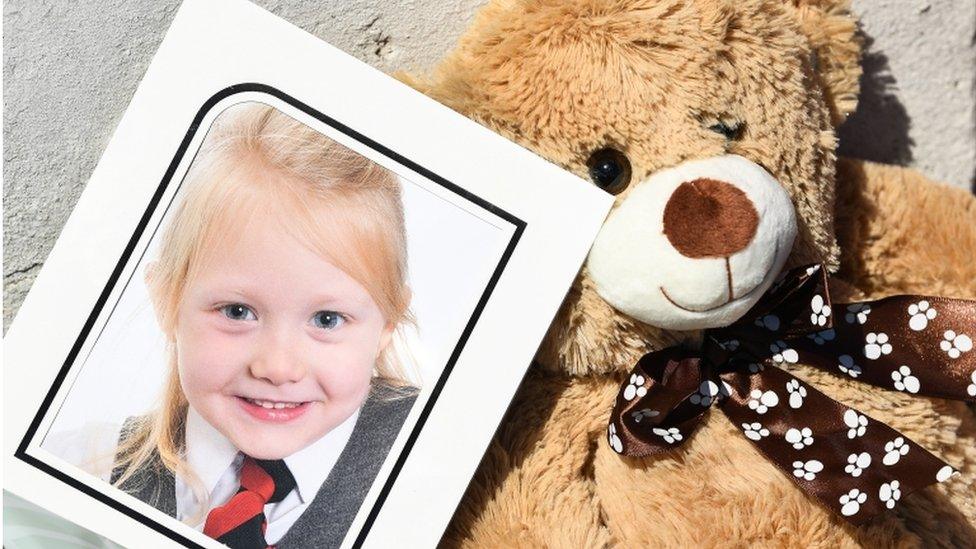
- Published20 February 2019

- Published19 February 2019
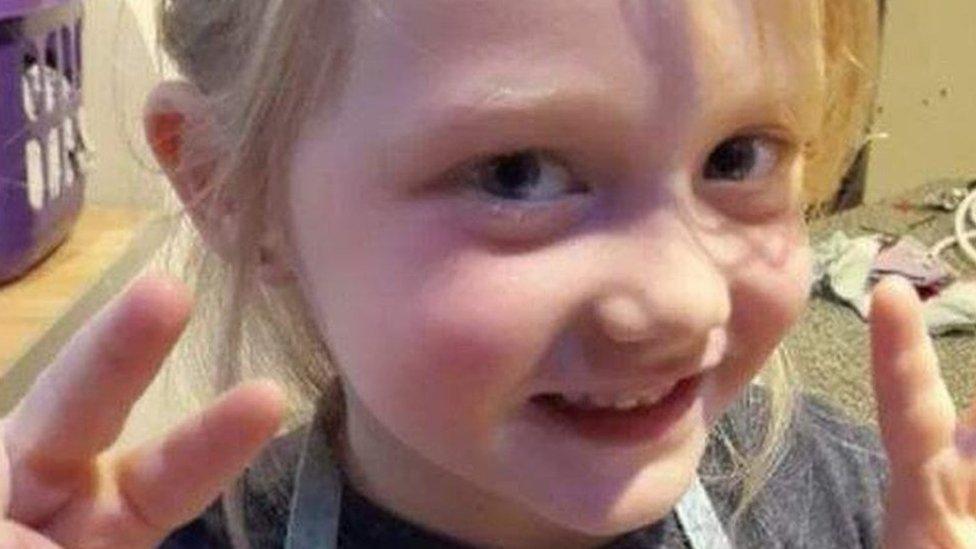
- Published18 February 2019

- Published15 February 2019
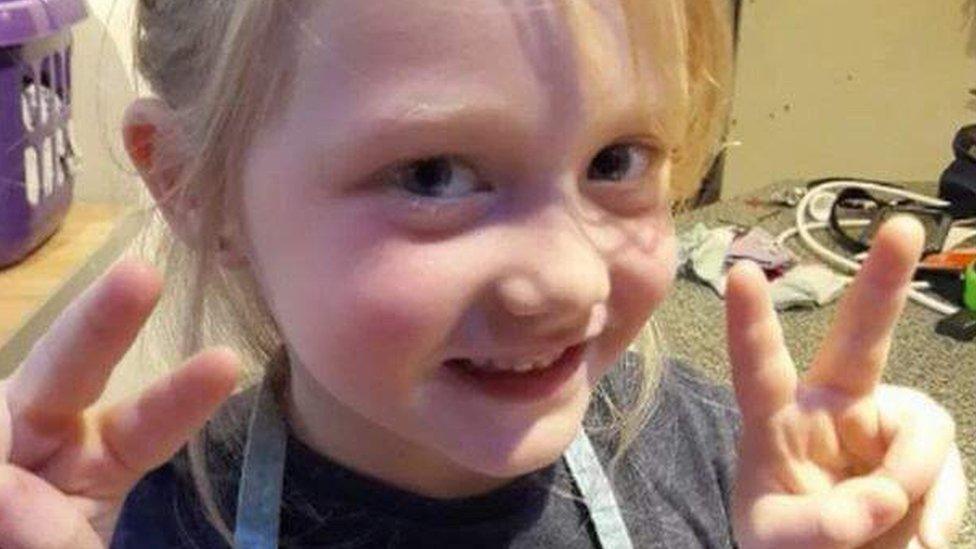
- Published14 February 2019
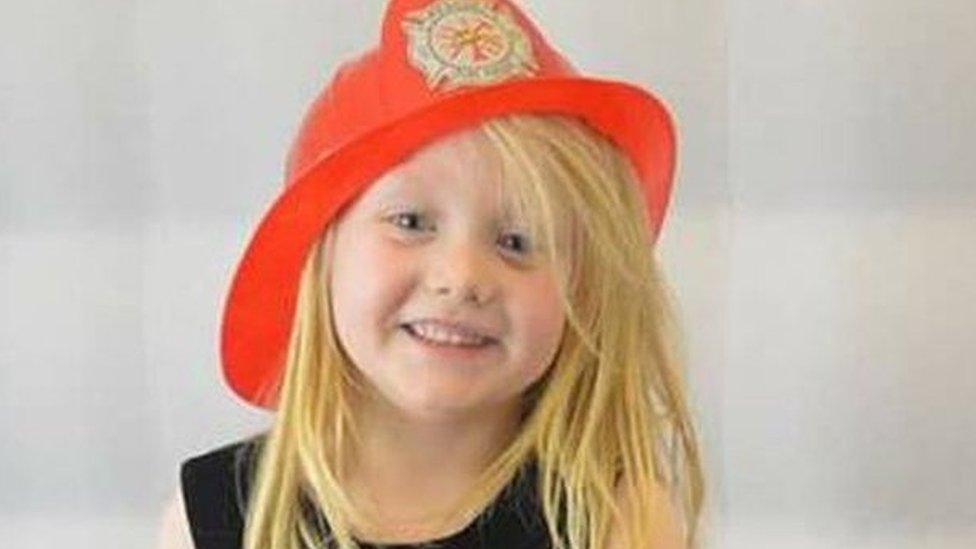
- Published13 February 2019
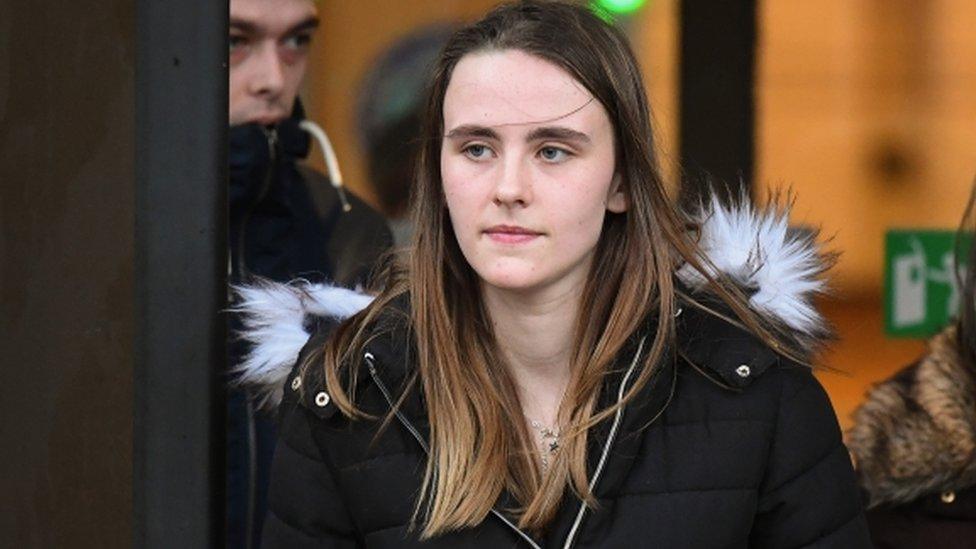
- Published12 February 2019

- Published11 February 2019

- Published21 July 2018
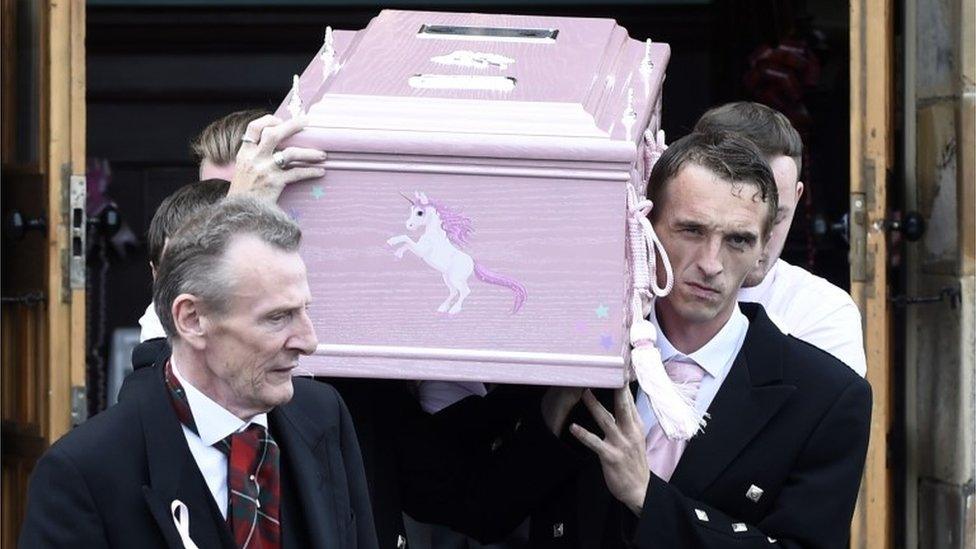
- Published8 July 2018
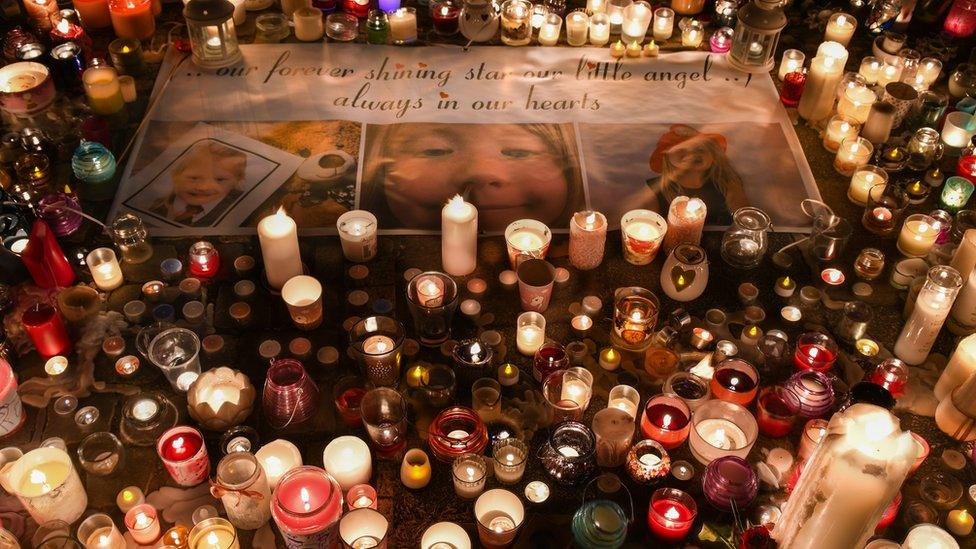
- Published3 July 2018
